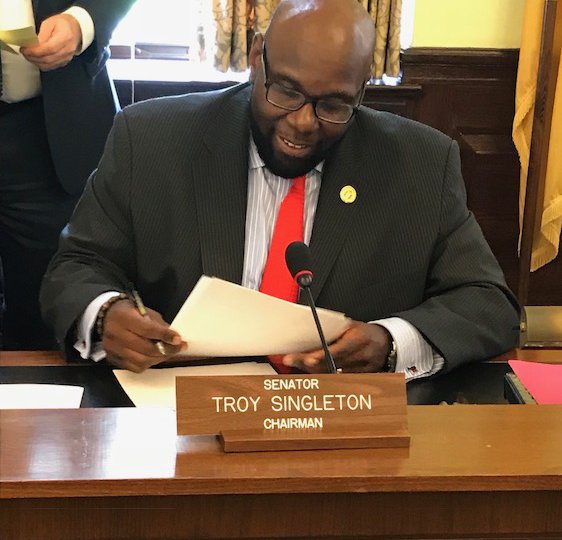
TRENTON – Legislation sponsored by Senator Troy Singleton that would prohibit excessive charges for drugs developed by publicly funded research was passed by the Senate Health, Human Services and Senior Citizens Committee today.
“No one should have to live in fear that they will go bankrupt if they get sick,” said Singleton (D-Burlington). “This proposal recognizes the public investment that taxpayers put into the development of prescription drugs, and reigns in the excessive pricing that too often forces people to go without their medication because it’s unaffordable.”
The bill, S-977, would prohibit any person from charging excessive prices for drugs developed by publicly funded research. Under the bill, if a drug, biologic or other health care technology approved by the federal Food and Drug Administration was developed, partially or entirely, through research and development that is directly or indirectly supported by the federal or state government, it would be unlawful for any person to sell, offer to sell, or advertise for sale the product to any purchaser in the state at a unit price that is greater than a benchmark unit price or that constitutes discriminatory pricing.
The bill would provide that a cost-based reasonable pricing formula constitutes discriminatory pricing if the contract for sale of the product places a limit on supply, or employs any other measure that has the effect of providing access to a drug, biologic or technology on terms or conditions that are less favorable than those provided to a foreign purchaser.
If the Commissioner of Health finds that it is in the public interest to waive the price requirements established under the bill for a specific product, the bill would allow the commissioner to, pursuant to the Administrative Procedure Act, issue a waiver of the price requirements for the specific drug, biologic, or technology.
The bill was released from committee by a vote of 5-1, and next heads to the Senate Budget and Appropriations Committee for further consideration.

